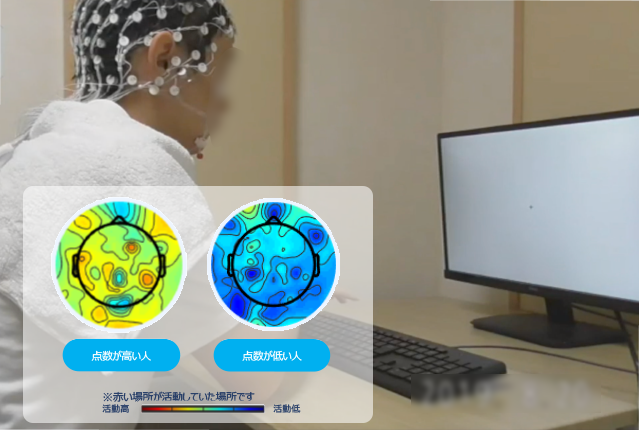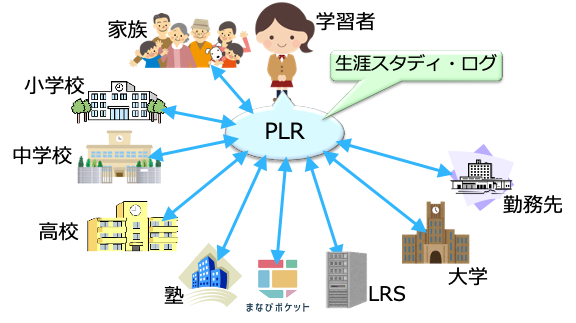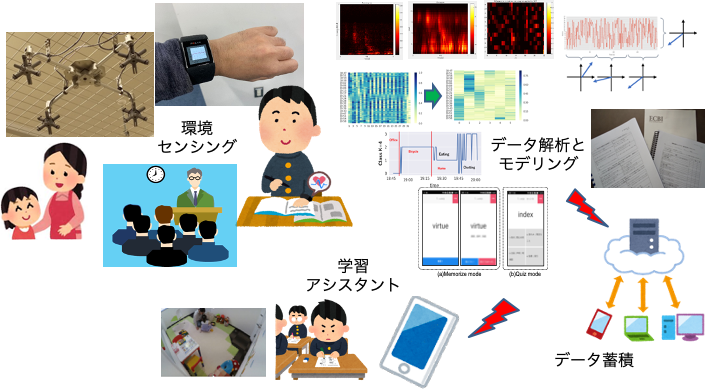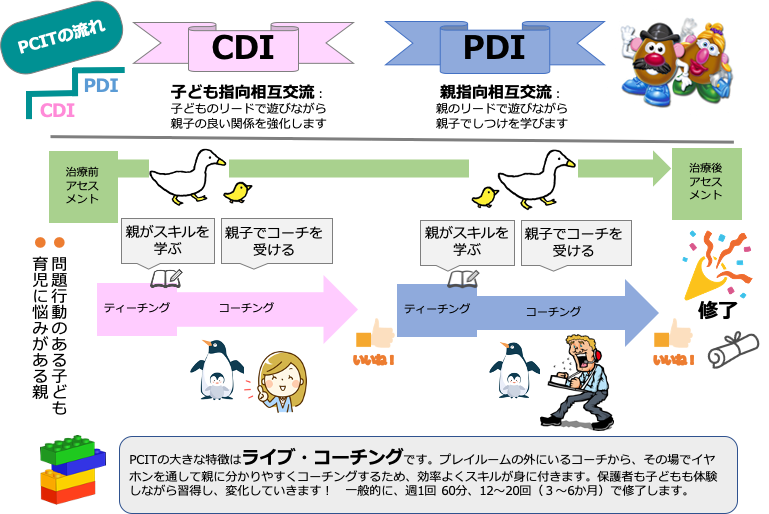Pedagogical information infrastructure based on mutual interaction
Overview
We are working on the following three research topics to build pedagogical information foundations for
the continuous and structural linking of the cognitive and information science and connect the knowledge
gained from detailed and rigorous laboratory tests to “learning” opportunities in the real world.
- Learning interaction measurement using sensors (e.g., wearable sensors, mobile terminals) in daily life to measure interactions (learning, cognitive logs) in a dense and long-term manner.
- Learning interaction accumulation in which cognitive logs are stored in a decentralized personal data store by the learner (agent) and the data is collected by the researcher with the consent of the learner.
- Learning interaction utilization in which, by categorizing the data collected in 2 via machine learning methods, we can propose and generate feedback corresponding to the “individual.”
Members
Research Director
Kazuo Hiraki (The University of Tokyo)
Collaborators
Koiti Hasida (The University of Tokyo)
Mitsuru Kawamoto (AIST)
Staffs
Hiraki Group (The University of Tokyo)
- Yasuhiro Kanakogi
- Masahiro Kawasaki
- Kikue Sakaguchi
- Eriko Yamamoto
- Yuma Kadokura
- Goh Matsuda
- Reiko Matsunaka
- Misako Kusaka
- Koudai Suzuki
- Satoshi Yazawa
- Masashi Inutsuka
- Delgado-Muñoz Jorge Armando
- Mizuka Ueda
- Reiki Kishimoto
- Yu Lira
- Lee Jaewon
- Terutaka Komahashi
Hasida Group (University of Tokyo)
- Yusuke Matsubara
- Yuko Yanaba
Kawamoto Group (AIST)
- Toshiko Kamo
- Akio Sashima
- Takahiro Miura
- Ken Uchiumi
Research
Hiraki Group (The University of Tokyo)

To build the pedagogical information foundations for the continuous and structural linking of cognitive and information sciences, and connect the knowledge gained from detailed and rigorous laboratory tests to “learning” opportunities in the real world, we have engaged in research that primarily associates cutting-edge brain activity measurement devices, such as electroencephalography and functional near-infrared spectroscopy, with compact and lightweight wearable devices.
See the following web page for details.
- Link
- Publication
Hasida Group (University of Tokyo)

By connecting Personal Life Repository (PLR) to various educational and learning-related apps and services, we enable the learner to manage their data and use it for learning. Furthermore, with the individual’s consent, this data can be easily collected and analyzed for the selection of learning materials and learning points for each learner.
- Link
- Publication
Kawamoto Group (AIST)

We are conducting research using various sensing technologies, focusing on environmental sound recognition, to develop methods and models that can clarify the relationship between states and learning situations in pedagogical environments. Additionally, we use parent-child interaction therapy (PCIT) sites for parent and child learning opportunities.

- Link
- Publication